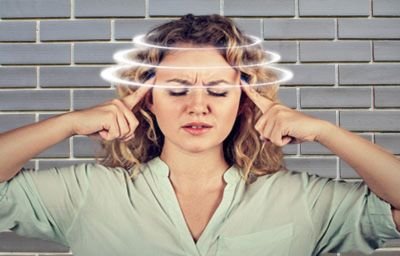
Vertigo significantly impacts daily life, causing unpredictable dizziness and anxiety. Simple tasks like getting out of bed or turning quickly can trigger intense episodes, often with nausea. This can lead to social isolation and reduced participation in activities due to fear of losing balance in public. Chronic vertigo affects work performance, leading to absenteeism and reduced productivity. Timely medical intervention and management strategies are crucial for minimizing these impacts and restoring normalcy and confidence in daily activities. Effective treatments such as vestibular rehabilitation therapy and lifestyle adjustments can also play a key role in improving symptoms and quality of life for individuals experiencing vertigo.
The more common cases of Vertigo include:
Positional Vertigo This is caused by a migration of inner ear crystals out of their correct location. When stimulated with quick head movement, the floating crystals give the brain a false sense of spinning. The spinning sensation usually lasts a few seconds but can be very alarming and dangerous. With proper diagnosis, Positional Vertigo can be easily treated with a form of physical therapy to encourage the crystals to migrate back to their correct location in the inner ear.
Menier’s DiseaseA syndrome where there is a build-up of fluid in the inner ear that causes a sensation of fullness, a fluctuating hearing loss, and ringing or roaring in the ear. The vertigo often occurs in attacks and can last for several hours or days. Treatment involves a low sodium diet, medications to reduce the fluid in the inner ear, and if allergies are present, allergy treatment. A new in-office surgical procedure, the Silverstien Wick, can be performed in our office to reduce the vertigo and hearing loss that occurs with Meniere’s disease.
LabrynthitisA condition due to inflammation caused by a viral infection of the inner ear that causes severe vertigo. It can often be improved with medications designed to reduce inflammation.
Acoustic NeuromaA benign tumor growing on a nerve responsible for transmitting signals to the brain from the inner ear. This tumor is slow growing, and although benign, does need to be treated with surgery or radiation to prevent further growth that would increase damage to the nerve.
The ear is a complex organ that allows detection of sounds around you and also assists in maintenance of balance. Sound is collected through the external ear and ear canal, which vibrates the eardrum and ossicles which are tiny bones behind the eardrum. The cochlea (inner ear) then picks up the sound waves and generates nerve impulses to the brain that we interpret as sound. The semicircular canals are three sets of balance receptors that give the brain information to maintain your balance. When the semicircular canals are not working properly, this may cause dizziness.